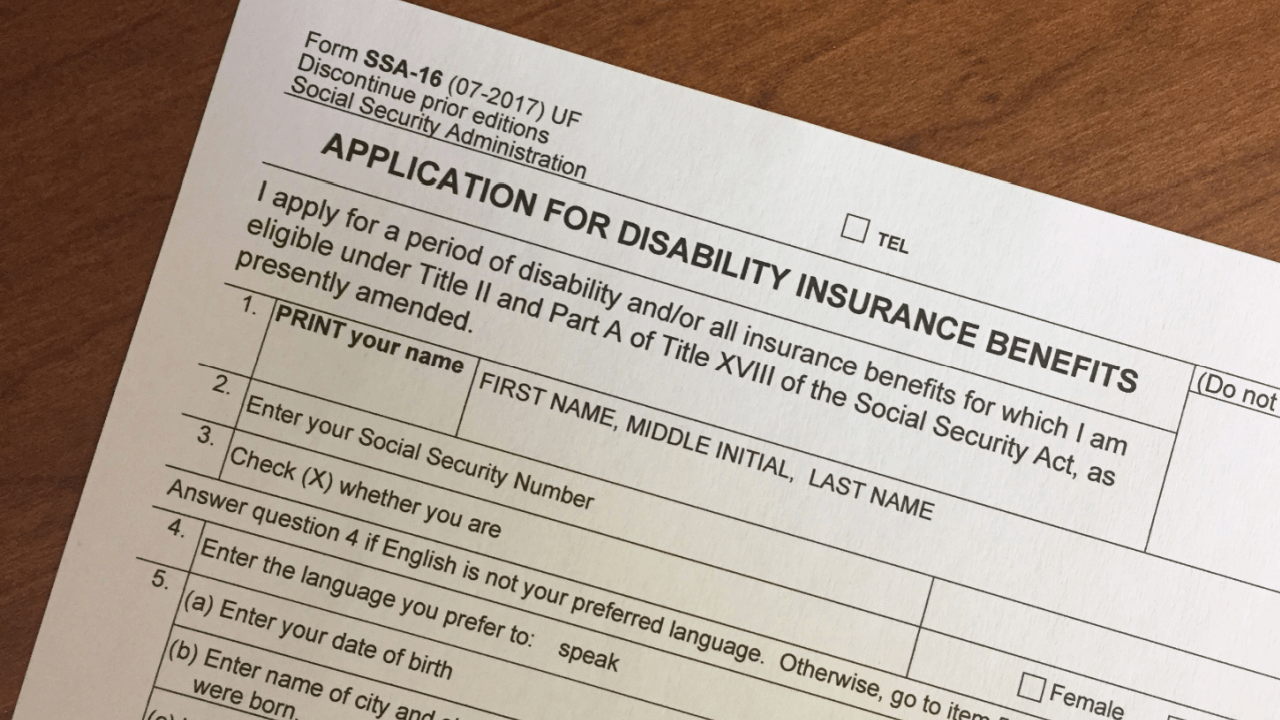
SSDI Reconsideration Payments Back Pay and Financial Impact: Complete Financial Guide
Essential Overview: SSDI Reconsideration Payments Back Pay and Financial Impact
SSDI reconsideration payments back pay and financial impact can significantly affect your financial stability during the appeals process. When your initial Social Security Disability Insurance claim faces denial, understanding the reconsideration process becomes crucial for securing both current benefits and substantial retroactive payments.
SSDI reconsideration represents the first appeal level, where Centers for Medicare & Medicaid Services coordinates with disability examiners to review your case using fresh perspectives and additional evidence. Back pay encompasses all monthly benefits owed from your established disability onset date through approval, creating potentially life-changing financial relief.
Reconsideration approvals occur less frequently than later appeal stages, and back pay amounts vary depending on individual circumstances, including work history, onset date, and benefit calculations. Processing timelines typically span 90-120 days, though complex cases may extend longer.
Understanding these financial implications helps you navigate this critical appeals process effectively.
Payment Calculations: How SSDI Back Pay Amounts Are Determined
SSDI back pay calculations involve multiple factors that can significantly impact your total award. Understanding these components helps you anticipate your payment amount and identify potential discrepancies.
Factors Affecting Your Back Pay Amount
Your onset date versus application date creates the foundation for calculations. The Department of Treasury processes payments based on your established onset date, monthly benefit rate, and applicable cost-of-living adjustments (COLA) during the qualifying period.
Key calculation elements:
- Primary Insurance Amount (PIA) from your work history
- Established disability onset date
- Five-month waiting period deduction
- Annual COLA increases during back pay period
Monthly Benefit Rate Calculations
Monthly benefits derive from your average indexed monthly earnings over your highest 35 working years. This amount remains consistent throughout your back pay period, with COLA adjustments applied annually.
Deductions You Should Expect
Standard deductions may include authorized attorney fees, Medicare premiums if applicable, and other statutory offsets.
Timeline Expectations: When SSDI Reconsideration Payments Back Pay Arrives
Understanding SSDI reconsideration timelines helps manage expectations and plan accordingly. The Social Security Administration (SSA) processes thousands of reconsiderations monthly, but individual cases vary significantly based on complexity and regional workloads.
Typical Reconsideration Processing Timeline
Reconsideration processing follows predictable milestones:
- Initial review period: 30-60 days after submission
- Medical evidence gathering: 60-90 days
- Decision notification: 90-120 days total
- Payment processing: 14-30 days after approval
Processing times vary and may extend longer in some cases depending on workload, evidence development, and administrative factors. Northeast regions typically process faster than southern states.
Payment Distribution Schedule
After approval, back pay is issued after final processing, with delivery timelines varying based on payment method and administrative processing.
Common delay factors include:
- Incomplete medical records requiring additional requests
- Complex work history verification
- Coordination with other benefit programs
- Administrative backlogs during peak filing periods
Disability attorney Sarah Martinez notes: “Clients should prepare for realistic timelines rather than optimistic projections. Cases requiring additional medical consultations can extend beyond average timeframes.”
Monitor your case status online through the SSA portal and maintain updated contact information to prevent delivery delays. Patience during this process is essential, as rushing often creates additional complications.
Financial Planning: Managing SSDI Reconsideration Payments Back Pay and Financial Impact
Receiving SSDI back pay requires careful financial planning to maximize long-term benefits. Large lump sum payments can significantly impact your financial situation, making strategic management essential for sustained stability.
Tax Considerations for Back Pay
The Internal Revenue Service (IRS) treats SSDI back pay differently depending on the tax years involved. Generally, you can spread the tax burden across the years the payments represent, potentially reducing your overall tax liability.
Key tax strategies:
- Consult a tax professional before spending large amounts
- Consider estimated tax payments to avoid penalties
- Explore lump sum election options for favorable treatment
Smart Spending Priorities
Prioritize essential expenses and debt elimination before discretionary purchases. Focus on:
- High-interest debt elimination
- Medical expenses and equipment needs
- Housing improvements for accessibility
- Emergency fund establishment (3-6 months expenses)
Common mistakes to avoid: Luxury purchases, investing without professional guidance, and neglecting tax obligations.
Long-term Financial Planning
Establish sustainable spending patterns that account for ongoing SSDI payments. Consider support-needs trusts if receiving other benefits, and explore ABLE accounts for additional savings opportunities.
Financial experts recommend treating back pay as a foundation for future security rather than immediate lifestyle upgrades. Proper planning ensures these payments provide lasting benefit throughout your disability period.
Process Navigation: Maximizing Your SSDI Reconsideration Success Rate
Successfully navigating SSDI reconsideration requires strategic preparation and meticulous attention to detail. The Disability Determination Services (DDS) evaluates your case based on specific criteria, making proper documentation absolutely critical for achieving favorable outcomes.
Essential Documentation Checklist
Complete documentation forms the foundation of successful reconsiderations. Essential items include:
- Updated medical records from all treating physicians
- Laboratory results and diagnostic imaging reports
- Mental health evaluations and therapy notes
- Prescription medication lists with dosages
- Work history documentation showing job limitations
- Daily activity statements detailing functional restrictions
- Third-party witness statements from family or employers
Complete and well-organized medical documentation plays an important role in how reconsideration claims are evaluated.
Working with Healthcare Providers
Healthcare providers play pivotal roles in reconsideration success. Request detailed RFC (Residual Functional Capacity) assessments that specifically address your work limitations. Ensure providers document objective findings, not just subjective complaints.
Case example: John’s initial denial was overturned after his cardiologist provided detailed exercise tolerance testing results, demonstrating his inability to sustain even sedentary work activities.
Expert attorney tips:
- Schedule appointments specifically to discuss disability limitations
- Request providers use Social Security’s terminology in reports
- Obtain copies of all records before submission deadlines
Legal representation may assist claimants with evidence development, procedural requirements, and appeal preparation. Consider professional assistance when dealing with complex medical conditions, prior denials, or approaching critical deadlines. Early intervention often prevents procedural mistakes that could compromise your entire case.
Risk Assessment: Potential Complications with SSDI Reconsideration Payments
While SSDI reconsideration can provide crucial financial relief, beneficiaries must navigate several potential complications that could create significant hardships. Understanding these risks helps prevent costly mistakes and protects your benefits.
Benefit Coordination Issues
SSDI payments can trigger complex interactions with other government programs. Medicare eligibility changes, Medicaid adjustments, and SNAP benefit reductions often occur when SSDI status shifts. Housing assistance programs may also recalculate benefits based on new income levels.
Red flags to monitor:
- Sudden changes in other benefit amounts
- Notices from multiple agencies requesting information
- Gaps in healthcare coverage during transitions
- Conflicting income reporting requirements
Example scenario: In some situations, receiving retroactive SSDI payments may temporarily affect eligibility for needs-based programs such as Medicaid, which can result in short-term gaps in prescription or healthcare coverage during benefit transitions.
Overpayment Prevention
Overpayment issues can occur, often due to income reporting errors or benefit calculation adjustments. These overpayments can create devastating financial burdens requiring immediate repayment.
Prevention strategies include:
- Maintaining detailed records of all income sources
- Reporting work attempts immediately
- Reviewing payment calculations carefully
- Seeking representative assistance for complex cases
Financial hardship during extended waiting periods remains common, with appeals beyond reconsideration taking 12-18 months on average. Beneficiaries should prepare contingency plans, including emergency assistance programs and community resources, to bridge potential income gaps.
Consider consulting with a disability attorney before accepting any large retroactive payments to ensure proper benefit coordination and avoid unintended consequences.
Final Insights: SSDI Reconsideration Payments Back Pay Long-term Financial Success
SSDI reconsideration success requires strategic planning beyond just winning your appeal. Back pay amounts vary, and reconsideration approvals remain challenging, making thorough preparation important. Focus on obtaining comprehensive medical evidence, addressing specific denial reasons, and maintaining consistent treatment records. Professional representation increases success rates significantly while requiring no upfront costs through contingency arrangements.
Plan for tax implications of lump sum back pay payments, potential debt garnishments, and ongoing benefit management. Even if reconsideration fails, this stage preserves your appeal rights for Administrative Law Judge hearings, which involve a more formal review process.
The financial security SSDI provides extends far beyond monthly payments—it includes Medicare eligibility, family benefits, and protection from poverty during disability. Professional guidance throughout this process supports informed decision-making throughout the reconsideration and appeals process.
Next Steps: Getting Professional Help with SSDI Reconsideration Payments Back Pay
Don’t navigate the complex SSDI reconsideration process alone. Professional guidance can help you understand the reconsideration process and available options for your claim. Contact a disability attorney within your 60-day appeal deadline for immediate case evaluation, and begin gathering medical records that demonstrate functional limitations and condition progression.
Disability attorneys work on contingency—Attorneys typically work on a contingency basis, subject to applicable rules and approval. For comprehensive reconsideration strategies and expert guidance, visit social security disability to access specialized resources designed specifically for denied applicants. Financial advisors can help structure potential back pay for long-term security, while advocacy organizations provide additional support throughout the appeals process.
Document all correspondence with SSA and healthcare providers to strengthen your case. social security disability offers detailed form instructions and proven strategies from successful appeals. Consider financial planning for back pay management and tax implications. For expert attorney referrals and maximized appeal success, social security disability provides the specialized resources you need to secure benefits earned through years of work contributions.
Frequently Asked Questions
1. How much SSDI reconsideration payments back pay can I expect to receive?
Back pay amounts depend on your monthly benefit rate and the time between your onset date and approval. Most recipients receive between $5,000-$15,000, though amounts can vary significantly based on individual circumstances and case duration.
2. How long does it take to receive SSDI back pay after reconsideration approval?
SSDI back pay typically arrives 30-60 days after your reconsideration approval. The Social Security Administration processes payments in batches, and direct deposit recipients usually receive funds faster than those waiting for checks.
3. Are SSDI reconsideration payments back pay subject to income taxes?
SSDI back pay may be partially taxable depending on your total income. The IRS allows you to spread the tax burden across the years you should have received benefits, potentially reducing your overall tax liability.
4. Can I receive SSDI back pay if my reconsideration is partially approved?
Yes, you can receive back pay even with a partial approval if your onset date is established earlier than your application date. The amount will be calculated based on the approved onset date and your monthly benefit rate.
5. What happens to my SSDI back pay if I owe child support or student loans?
Federal agencies can garnish SSDI back pay for certain debts including unpaid child support, federal student loans, and tax obligations. Typically, up to 15% of ongoing benefits and larger portions of lump sum back pay can be withheld.
Key Takeaways
- Payment Timing: SSDI reconsideration payments back pay typically arrives 30-60 days after approval, with amounts ranging from $5,000-$15,000 for most recipients.
- Calculation Factors: Your back pay amount depends on monthly benefit rates, onset dates, cost-of-living adjustments, and any applicable deductions or attorney fees.
- Tax Planning: Large lump sum payments may have tax implications, but IRS rules allow spreading the tax burden across multiple years to minimize impact.
- Financial Strategy: Create a spending plan that prioritizes debt payments, emergency funds, and essential expenses before considering discretionary purchases.
- Professional Guidance: Working with disability attorneys and financial advisors can significantly improve your chances of approval and help optimize your financial outcomes.


